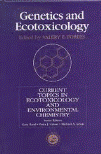Papers in the Biological Sciences

Valery Forbes Publications
Document Type
Article
Date of this Version
2006
Abstract
These experiments are part of a larger study designed to investigate the influence of husbandry parameters on the life history of the apple snail, Marisa cornuarietis. The overall objective of the program is to identify suitable husbandry conditions for maintaining multigeneration populations of this species in the laboratory for use in ecotoxicological testing. In this article, we focus on the effects of photoperiod, temperature, and population density on adult fecundity and juvenile growth. Increasing photoperiod from 12 to 16 h of light per day had no effect on adult fecundity or egg hatching and relatively minor effects on juvenile growth and development. Rearing snails at temperatures between 22 degrees C and 28 degrees C did not influence the rates of egg production or egg clutch size. However, the rates of growth and development (of eggs and juveniles) increased with increasing temperature in this range, and when temperatures were reduced to 22 degrees C egg-hatching success was impaired. Juvenile growth and development were more sensitive to rearing density than adult fecundity traits. On the basis of the present results, we conclude that rearing individuals of M. cornuarietis at a temperature of 25 degrees C, a photoperiod of 12L:12D, and a density of-1 (with lower densities for juvenile snails) should provide favorable husbandry conditions for maintaining multi-generation populations of this species.


Comments
Published in Invertebrate Biology 125(1): 9–20. Copyright 2006 The Authors. Published by The American Microscopical Society, Inc. DOI: 10.1111/j.1744-7410.2006.00035.x Used by permission.